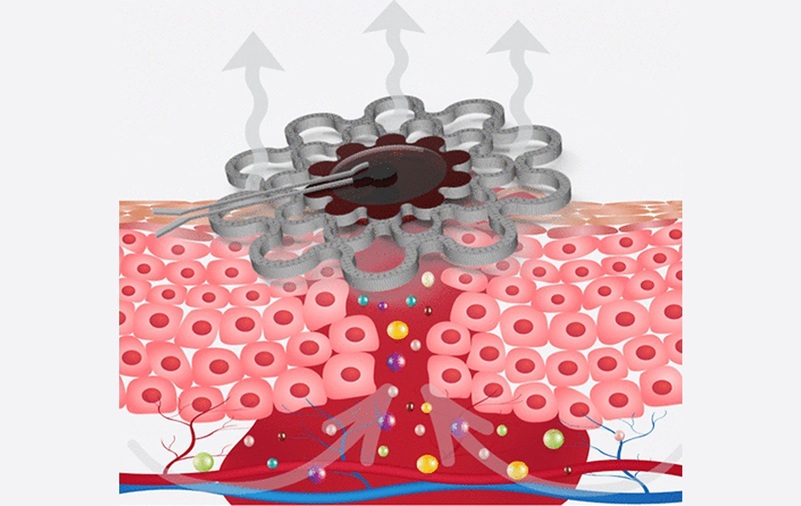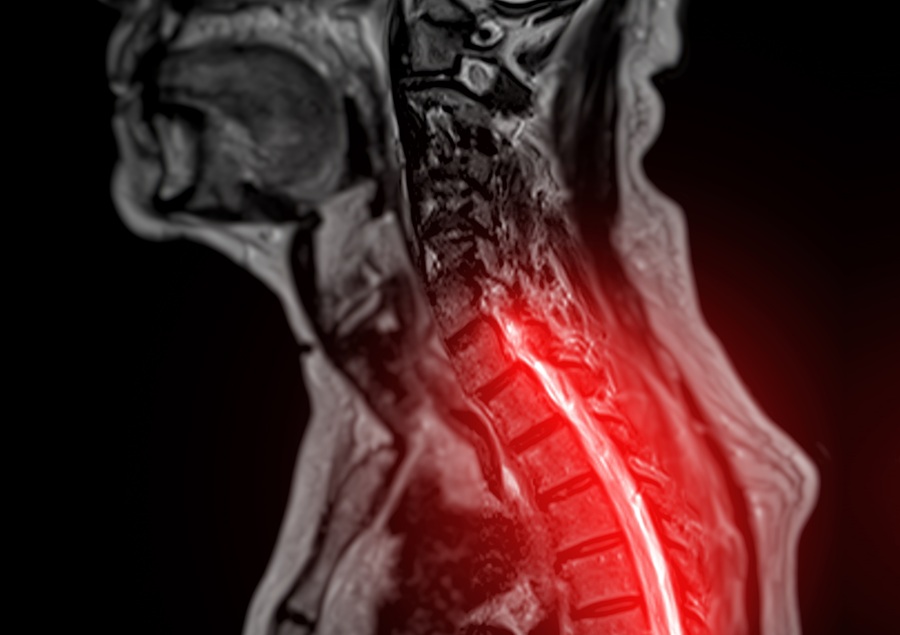Hormone Replacement Therapy Preserves Joint Implants
|
By HospiMedica International staff writers Posted on 23 Feb 2015 |
A new study reveals that hormone replacement therapy (HRT) is associated with an almost 40% decrease in the rate of revision surgery for hip and knee implants in women.
Researchers at the University of Oxford (United Kingdom), Universitat Autònoma de Barcelona (UAB; Spain), and other institutions conducted a study of 24,733 women who underwent primary total knee arthroplasty (TKA) or total hip arthroplasty (THA) to examine if HRT could reduce osteolysis and subsequent prosthesis loosening, the most common cause for revision surgery. The researchers explored associations with HRT use for over a year, adherence, and cumulative use and revision risk.
The results showed that the hazard ratio for implant failure fell to 0.62 after six months among HRT users. The risk reduction fell even further, reaching 0.48 for those who continued on HRT for at least a year. The results also showed that higher adherence and therapy duration were associated with further reductions in revision rates, but that preoperative HRT appeared unrelated to implant survival. The study was published in the March 2015 issue of Annals of the Rheumatic Diseases.
“Animal studies have suggested that estrogen deficiency exerts a negative influence on bone tissue around knee implants, while HRT minimizes periprosthetic bone loss and improves bone ingrowth around the implant,” concluded lead author Nigel Arden, MD, of the University of Oxford, and colleagues. “The findings that significant reductions in revision risk were seen among HRT users are encouraging for the research of antiresorptive agents that might improve outcomes following total joint replacement surgery in the future.”
The most common reason for joint replacement failure in the first year post implantation is due to aseptic loosening, which can result from osteolysis in the surrounding bone. While the mechanisms underlying loosening are still obscure, it is widely accepted that periprosthetic bone loss secondary to chronic inflammation and osteoclastic activity is the main pathway.
Related Links:
University of Oxford
Universitat Autònoma de Barcelona
Researchers at the University of Oxford (United Kingdom), Universitat Autònoma de Barcelona (UAB; Spain), and other institutions conducted a study of 24,733 women who underwent primary total knee arthroplasty (TKA) or total hip arthroplasty (THA) to examine if HRT could reduce osteolysis and subsequent prosthesis loosening, the most common cause for revision surgery. The researchers explored associations with HRT use for over a year, adherence, and cumulative use and revision risk.
The results showed that the hazard ratio for implant failure fell to 0.62 after six months among HRT users. The risk reduction fell even further, reaching 0.48 for those who continued on HRT for at least a year. The results also showed that higher adherence and therapy duration were associated with further reductions in revision rates, but that preoperative HRT appeared unrelated to implant survival. The study was published in the March 2015 issue of Annals of the Rheumatic Diseases.
“Animal studies have suggested that estrogen deficiency exerts a negative influence on bone tissue around knee implants, while HRT minimizes periprosthetic bone loss and improves bone ingrowth around the implant,” concluded lead author Nigel Arden, MD, of the University of Oxford, and colleagues. “The findings that significant reductions in revision risk were seen among HRT users are encouraging for the research of antiresorptive agents that might improve outcomes following total joint replacement surgery in the future.”
The most common reason for joint replacement failure in the first year post implantation is due to aseptic loosening, which can result from osteolysis in the surrounding bone. While the mechanisms underlying loosening are still obscure, it is widely accepted that periprosthetic bone loss secondary to chronic inflammation and osteoclastic activity is the main pathway.
Related Links:
University of Oxford
Universitat Autònoma de Barcelona
Latest Surgical Techniques News
- Brain Implant Records Neural Signals and Delivers Precise Medication
- AI-Based OCT Image Analysis Identifies High-Risk Plaques in Coronary Arteries
- Neural Device Regrows Surrounding Skull After Brain Implantation
- Surgical Innovation Cuts Ovarian Cancer Risk by 80%
- New Imaging Combo Offers Hope for High-Risk Heart Patients
- New Classification System Brings Clarity to Brain Tumor Surgery Decisions
- Boengineered Tissue Offers New Hope for Secondary Lymphedema Treatment
- Dual-Energy Catheter Brings New Flexibility to AFib Ablation
- 3D Bioprinting Pushes Boundaries in Quest for Custom Livers
- New AI Approach to Improve Surgical Imaging
- First-Of-Its-Kind Probe Monitors Fetal Health in Utero During Surgery
- Ultrasound Device Offers Non-Invasive Treatment for Kidney Stones
- Light-Activated Tissue Adhesive Patch Achieves Rapid and Watertight Neurosurgical Sealing
- Minimally Invasive Coronary Artery Bypass Method Offers Safer Alternative to Open-Heart Surgery
- Injectable Breast ‘Implant’ Offers Alternative to Traditional Surgeries
- AI Detects Stomach Cancer Risk from Upper Endoscopic Images
Channels
Artificial Intelligence
view channelCritical Care
view channel
Specialized Dressing with Sensor Monitors pH Levels in Chronic Wounds
Any wound has the potential to become chronic, but the risk is significantly higher in individuals with certain medical conditions. Once a wound becomes chronic, healing slows, complications increase,... Read more
AI Model Could Help Diagnose Spinal Cord Disease Up To 30 Months Earlier
Cervical spondylotic myelopathy (CSM) is the leading cause of spinal cord dysfunction in older adults and occurs when arthritis in the neck compresses the spinal cord. The condition is chronic and progressive,... Read morePatient Care
view channel
Revolutionary Automatic IV-Line Flushing Device to Enhance Infusion Care
More than 80% of in-hospital patients receive intravenous (IV) therapy. Every dose of IV medicine delivered in a small volume (<250 mL) infusion bag should be followed by subsequent flushing to ensure... Read more
VR Training Tool Combats Contamination of Portable Medical Equipment
Healthcare-associated infections (HAIs) impact one in every 31 patients, cause nearly 100,000 deaths each year, and cost USD 28.4 billion in direct medical expenses. Notably, up to 75% of these infections... Read more
Portable Biosensor Platform to Reduce Hospital-Acquired Infections
Approximately 4 million patients in the European Union acquire healthcare-associated infections (HAIs) or nosocomial infections each year, with around 37,000 deaths directly resulting from these infections,... Read moreFirst-Of-Its-Kind Portable Germicidal Light Technology Disinfects High-Touch Clinical Surfaces in Seconds
Reducing healthcare-acquired infections (HAIs) remains a pressing issue within global healthcare systems. In the United States alone, 1.7 million patients contract HAIs annually, leading to approximately... Read moreHealth IT
view channel
EMR-Based Tool Predicts Graft Failure After Kidney Transplant
Kidney transplantation offers patients with end-stage kidney disease longer survival and better quality of life than dialysis, yet graft failure remains a major challenge. Although a successful transplant... Read more
Printable Molecule-Selective Nanoparticles Enable Mass Production of Wearable Biosensors
The future of medicine is likely to focus on the personalization of healthcare—understanding exactly what an individual requires and delivering the appropriate combination of nutrients, metabolites, and... Read moreBusiness
view channel
Medtronic to Acquire Coronary Artery Medtech Company CathWorks
Medtronic plc (Galway, Ireland) has announced that it will exercise its option to acquire CathWorks (Kfar Saba, Israel), a privately held medical device company, which aims to transform how coronary artery... Read more
Medtronic and Mindray Expand Strategic Partnership to Ambulatory Surgery Centers in the U.S.
Mindray North America and Medtronic have expanded their strategic partnership to bring integrated patient monitoring solutions to ambulatory surgery centers across the United States. The collaboration... Read more
FDA Clearance Expands Robotic Options for Minimally Invasive Heart Surgery
Cardiovascular disease remains the world’s leading cause of death, with nearly 18 million fatalities each year, and more than two million patients undergo open-heart surgery annually, most involving sternotomy.... Read more
















